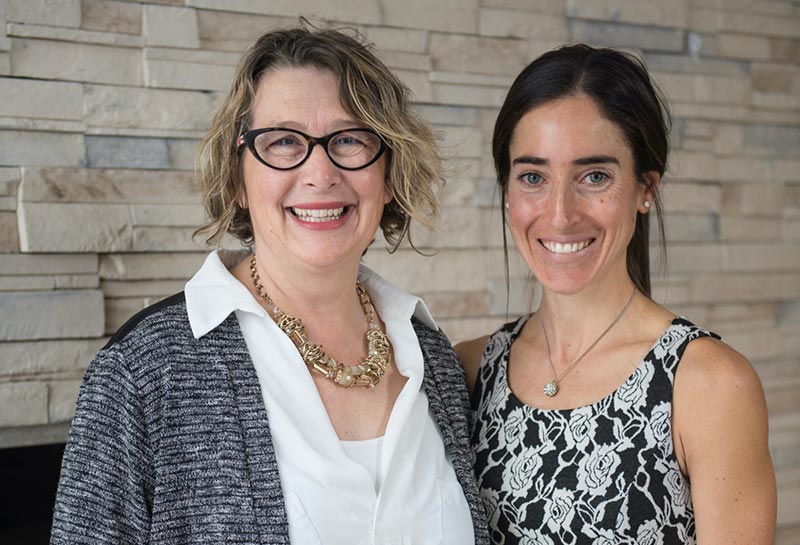Lessons learned from NaviCare/SoinsNavi as project concludes
Author: UNB Newsroom
Posted on Jul 26, 2021
Category: UNB Saint John , UNB Fredericton

After four-and-a-half years of exploring the impact of patient navigation for children and youth with healthcare needs and their families, the University of New Brunswick and Mount Allison University-led NaviCare/SoinsNavi project has come to an end.
The UNB research team is looking back on the experience and moving toward their next opportunity to build on that knowledge in new directions. In doing so, they hope to create a more accessible and integrated healthcare system for families.
The bilingual navigation centre was launched in January 2017, with a generous donation of $750,000 from the New Brunswick Children’s Foundation. The project offered a virtual patient navigation centre for children and youth with complex care needs from Monday to Friday between 9 a.m. and 5 p.m. The centre employed a registered nurse as their patient navigator who worked closely with clients.
The team conducted research on patient navigation under the Centre for Research in Integrated Care (CRIC) at UNB. Patient navigation is a person-centred model of care, designed to coordinate patients with multidimensional needs, their families, as well as members of the care team to services and resources across settings, levels of care and sectors.
“Children and youth with complex care needs require more and varied healthcare services than the average child or youth,” says Dr. Shelley Doucet, NaviCare/SonisNavi co-founder and professor in the department of nursing and health sciences at UNB Saint John. “Navigating services and resources can be a time-consuming process for families who are already vulnerable and in need of quality care.”
Although the project has ended, the knowledge gained will go on to inform future patient navigation projects.
Some of the lessons learned from NaviCare/SoinsNavi include:
- Children with complex care needs require a multitude of services across government and community to meet their medical, developmental, physical, mental, psychosocial and spiritual needs.
- Pediatric patient navigation models of care can address a number of needs around accessing services and care coordination.
- There is a need for navigational support for healthcare providers as well as families.
- Patient navigation models function optimally when embedded within the system, rather than as a standalone program.
- Integrated approaches are vital not only to improve patient/family experiences, quality of life and health outcomes, but also to reduce healthcare costs.
- Patient navigation models can support youth when they transition from pediatric to adult health care.
- Patient and Family Advisory Councils are important to ensure programs meet the needs of clients through advising the research team, staff and patient navigators. They can also engage in their own projects to build capacity in the community.
“Through NaviCare/SoinsNavi, we were able to reduce stress many families in our province endure while trying to receive care for their children,” says Dr. Alison Luke, research associate in the department of nursing and health sciences at UNB Saint John. “Our hopes are that our communities and healthcare systems recognize the benefits of patient navigation and implement this model.”
Dr. Doucet and her team are now looking toward the future and how they can use what they learned through NaviCare/SoinsNavi to explore the implementation of a patient navigation program focused on supporting youth when they transition from pediatric to adult health care. They are also in the process of developing patient navigation services for people living with dementia, their caregivers and members of the care team.
“Our goal is to continue to find ways to make health care easier to navigate and more integrated,” says Dr. Doucet. “We hope to create access to this type of service for more individuals with complex care needs.”
Media contact: Kathleen McLaughlin
Photo: Dr. Alison Luke and Dr. Shelley Doucet
